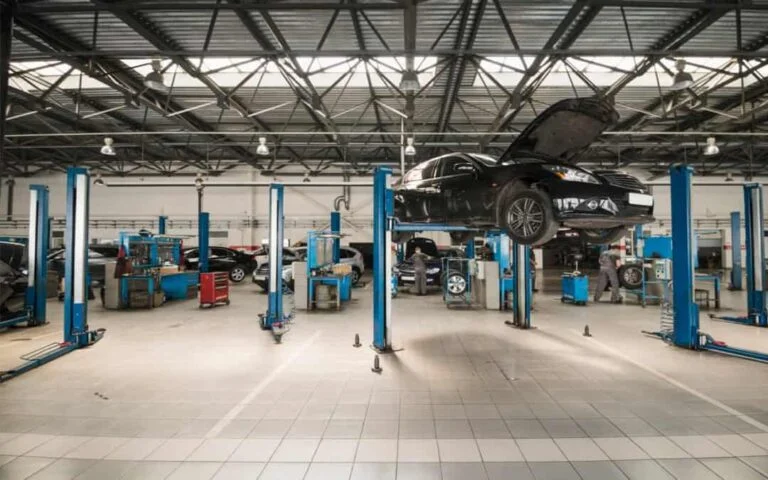Common Causes Of Boating Accidents
Boating is a lifestyle that many Americans enjoy, especially those who are lucky to be around bodies of water. However, this aquatic activity comes with dangerous risks that can be fatal, so it is vital to be aware of the most common causes of boating accidents and how a boat operator can prevent these situations from happening.
Some of the most common causes of boating accidents are as follows:
Operator Inattentiveness
Operator inattentiveness is described as the “failure of the boat operator to pay attention to the vessel, its occupants, or the environment in which the vessel is operating.”
In the 2019 recreational boating statistics collected by the United States Coast Guard, operator inattentiveness was identified as the most common cause of boating accidents.
Operator inattentiveness can lead to severe and even fatal consequences including, but not limited to, collisions, passengers or crew falling overboard, and slip-and-falls onboard.
Improper Lookout
Part of adequately operating a boat is to have a proper lookout. Under Rule 5 of the International Regulations of Preventing Collisions at Sea, a boat operator must maintain an unobstructed view from the helm to continuously eye the waters of the bow and starboard and port sides and adjust boat-handling for boat-handling change in the conditions.
A proper lookout basically ensures to watch out for other boats, swimmers, swimming areas, skiers, flags, fishnets or other buoys, floating debris, or obstacles that might collide with the boat.
Typically, a lookout helper is designated to assist in this critical task. Failure of the lookout to properly pay attention and warn the operator of any danger could lead to a boating accident.
Excessive Speeding
Like land vehicles, boats must be operated at a safe speed to avoid accidents, mainly to ensure that the operator has total control of the boat at all times. It is also important to remember that maintaining a safe speed must be observed even if the boat operator is experienced.
Violation Of Waterway Navigation Rules
Similar to operating a motor vehicle inland, boats are expected to adhere to
navigation rules of the waterway. By following the established rules of the waterway, a boat operator can prevent boating accidents, including collisions with other water vessels. Some of these important navigation rules include knowing who has the right of way, rules for those crossing paths, on course to meet head-on, or how to navigate if a boat has to overtake another water vessel.
Alcohol Or Drug Use
As noted above, total control of the boat is crucial to prevent boat accidents. Proper operation of a vessel also requires the operator to be able to make quick and rational decisions. However, alcohol or drug use can impair a boat operator’s ability to make coherent decisions or make immediate logical reactions to address any potential danger that the boat may face. Thus, it is important to steer clear of alcohol and drug while operating boats.
More importantly, there are serious criminal penalties for violating these rules. In Louisiana, the law specifically prohibits anyone from operating a water vessel, including boats, with a blood alcohol concentration of 0.08% or greater.
Motor Or Equipment Failure
Another common cause of boat accidents is motor or equipment failure during the boat’s operation. These technical problems can be avoided through proper inspection and maintenance of the boat before operation.
Thus, it is crucial to keep the boat’s maintenance to lower the risks of any failure and accidents during the operation of the boat.
Dangerous Water Condition
Dangerous waters can occur through sudden changes in the water current or rapid tidal flows that make it challenging to navigate while operating a boat. It is important to remember that water conditions can suddenly change without much notice.
Given these challenges, it is important that a boat operator is experienced not only sudden changes in water conditions but also aware of any changes that they may need to adjust to navigating through the waters successfully.
Hazardous Weather Condition
For the most part, current weather conditions can be anticipated. However, similar to water conditions, there are circumstances where sudden changes in the weather can occur and could cause dangerous boating conditions. Such hazardous weather conditions that can be risky to operate a boat include, but are not limited to, strong winds, lightning, fog, or dark clouds.
In these circumstances, having a boat operator who is vigilant of any sudden changes in the weather condition and experience in handling such circumstances is important to lessen the risk of getting into a boat accident.
Force Of Waves Or Wake
Awake or force of waves is what a boat leaves behind as it cuts through the water at different speeds. Generally, a boat moving at a fast pace would leave a large disturbance of water which can cause forceful movement that leads to dangerous, even fatal accidents to the boat passengers or those around the boat.
Boating accidents can occur due to various causes and lead to severe or even fatal consequences. However, boating accidents are not limited to operators or passengers of a boat. Boat accidents can also affect anybody in the water or those that have come in contact with a boat. Thus, it is important to be vigilant every time you are in a body of water.
If you or a loved one is a party to a boating accident, you need a reputable lawyer to defend your rights vigorously. Our highly experienced injury lawyers are here to guide and help you in your case. Please call us at (225) 963-9638, or you can click here to contact us for a consultation. Our dependable personal injury lawyers can help you assess your situation, represent your claim, and answer any concerns you may have regarding your lawsuit.


